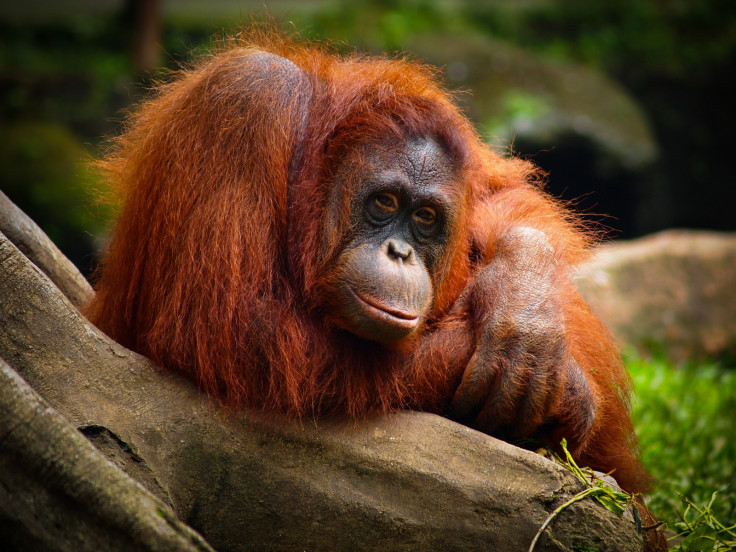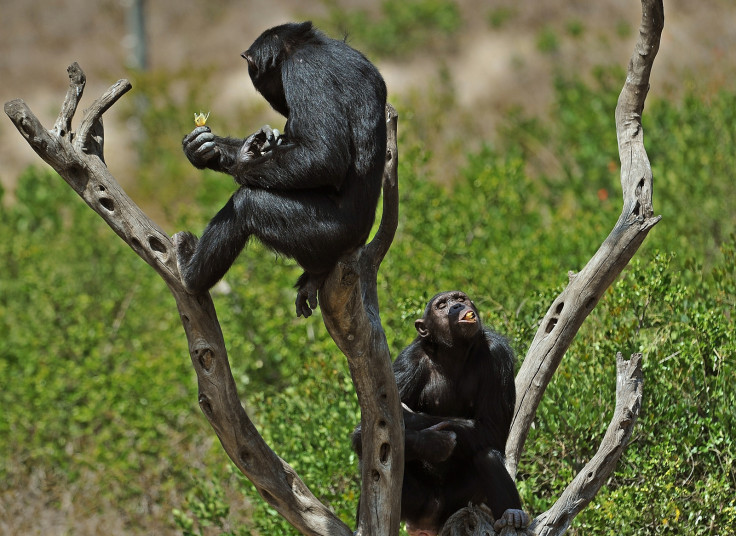Great apes can spot when we have 'false beliefs' about reality – and they can help us out
Experiments have shown that great apes know when researchers are mistaken about the location of an object.
Just like humans, great apes are often able to understand the psychological states of others. A new study has revealed that they may also be able to spot when people hold "false beliefs".
Great apes are humans' closest primate relatives. A lot of research had been done to improve our understanding of their social cognitive abilities. Scientists have for instance shown that these animals are able to identify the goals of others or their desires.
However, they disagreed on the question of whether great apes understood the false belief of others. This is the ability to understand that someone's action is directed in a particular way not because of reality but because of what they think is real – and it is an important marker of advanced social cognition.
Learning more about whether great apes are capable of this is crucial to understand what makes human cognition unique.
"Social cognition, in general, is an umbrella term for all cognitive capabilities involved in social interactions. Whenever at least two human or non-human individuals interact, they need to understand the gestures, motivations, feelings, intentions, and beliefs of their interaction partners. Investigating social cognition in great apes helps us understand what exactly makes human human and how social cognitive abilities evolved," David Buttelmann (University of Erfurt), lead author of the new study, told IBTimes UK.
The research, published in PLOS ONE, overturns three decades of scientific literature on the subject of false beliefs in great apes, suggesting that these animals may possess some basic understanding that other's actions are based on their beliefs about reality.
False-belief tests
Using a series of tests that was developed for 16 and 18-month-old human infants, Buttelmann and his colleagues evaluated 34 great apes (chimpanzees, bonobos and orangutans) at the Leipzig Zoo in Germany.
The experiment went as follows: a researcher placed an object in one of two boxes. Another then took the object out and put it in the other box – and then locked both boxes.
In the first test – "the true belief test" – the first experimenter was in the room when the change took place so he or she had a "true belief" of where the object was in the end. However in the "false belief test", he left the room while the object was placed in another box. This means that even though the experimenter thought he knew where the object was, he was in fact mistaken – the experimenter had "false belief" about where the object was.

The apes were present in the room throughout the test and they knew how to unlock the boxes. They could thus take the initiative to open the correct box for the researcher.
Buttelmann detailed the findings: "When the experimenter falsely believed the box he wanted to open contained his object, the apes helped him by opening the box that actually contained his object. When, in contrast, he knew that his object was in the other box and that the box he tried to open was empty, the participants were significantly less likely to open the box with the object."
These results indicate that great apes are equipped to use their understanding of the person's beliefs about reality to decide whether or not to help him – in the same way as human infants. This suggests that such understanding might not be exclusive to humans.

The scientists now would like to conduct similar experiments in other species, in the hope they can keep improving their understanding of human cognition.
"What I would love to do next, is to develop interactive false-belief tests for other species. This way we will be able to track the development of our own mind and understand, at some point, what factors made theory of mind evolve and, hopefully, what made us 'uniquely human'," Buttelmann concluded.
© Copyright IBTimes 2025. All rights reserved.






















